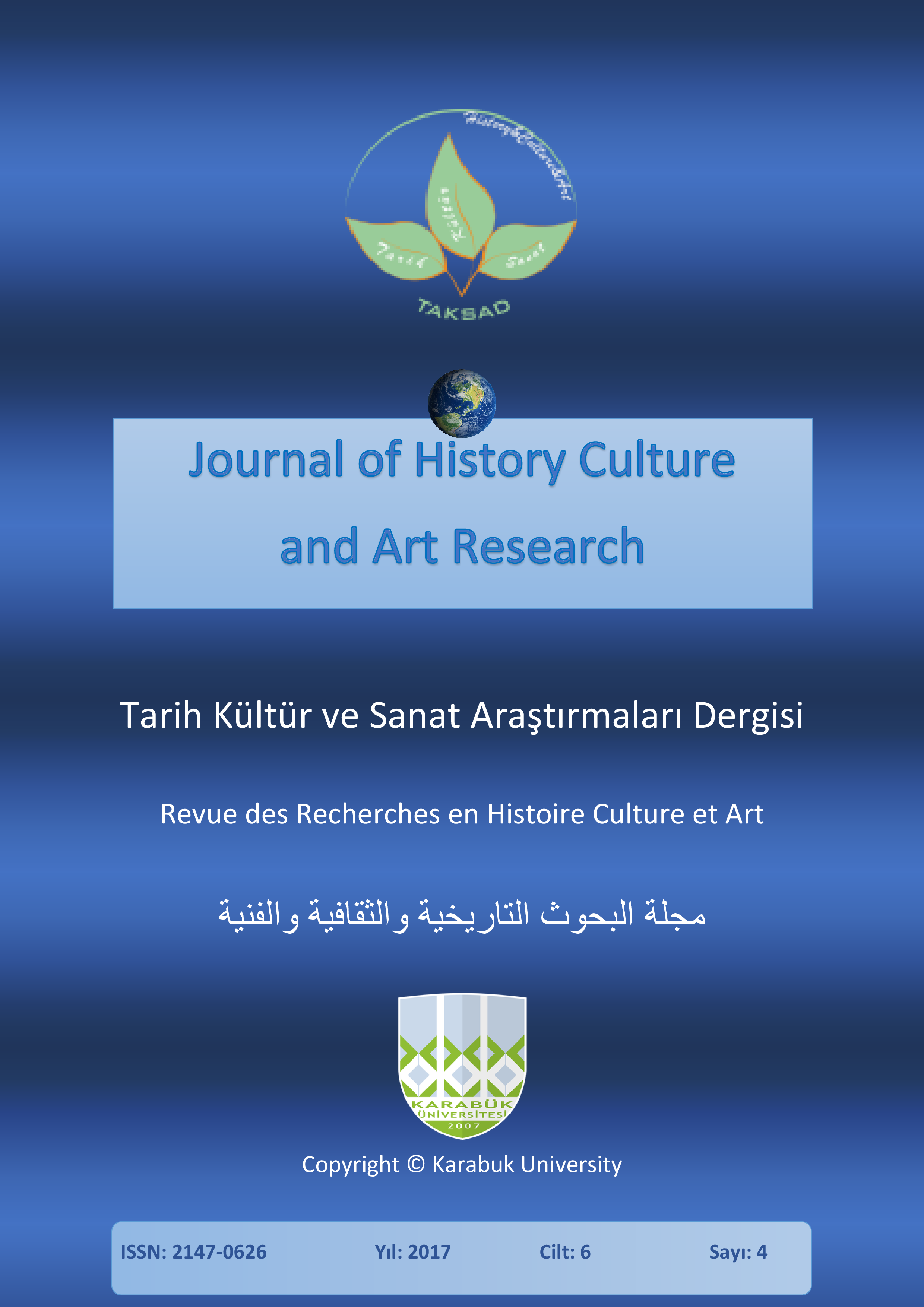Methodological Principles of Polycultural Education
DOI:
https://doi.org/10.7596/taksad.v6i4.1180Anahtar Kelimeler:
Methodological principles- Polycultural education- Dialogue approach- Activity-oriented conception- Conception of multi-perspective education.Özet
This article elaborates polycultural education approach. Three main approaches for understanding of polycultural education (acculturation, dialogue and social cum psychological) are considered and conceptions evolved within their framework. Attention is also paid to the foreign and domestic (Russian) researches in this area. In the end of the article the author handles the idea of “polycultural education”. The article deals with the following: dialogue approach, which is based on the ideas of cultures dialogue, openness, cultural pluralism; activity-oriented conception of polycultural education, conception of multi-perspective education, conception of “cultural differences”, and conception of social education.
Referanslar
Aleksashenkova, I. V. (2005). Polycultural education terms of the world’s experience. Herald of the Novgorod State University, (31), 22-26.
Bibler, V. S. (1998 ed.). Phylosophy-psychological propositions of the School of cultures’ dialogue. М.: ROSPEN.
Christian, D. (1996). Two-Way Immersion Education: Students Learning through Two Languages. The Modern Language Journal, 80(1), 66-76.
Cohen, Ph. (1988). The Perversions of Inheritance: Studies in the Making of Multi-Racist Britain. In: Multi-Racist Britain. Macmillan Press.
Essed Ph. & Mullard, Ch. (1991). Antirassistische Erziehung. Grundlagen und Uberlegungen fur eine antirassistische Erziehungstheorie.
Gaitanides, St. (1994). Interkulturelles Lernen in einer multikulturellen Gesellschaft.
Gaitanides, St. (1994). Interkulturelles Lernen in einer multikulturellen Gesellschaft.
Gay, Geneva (1983). Multiethnic education: Historical Developments and Future Prospects. The Phi Delta Kappan, 64(8), 560-563
Glossary of educational technologies (2006). Main terms. URL: http://didacts.ru/dictionary/1005/symbol/202
Gopfert H. (1985). Auslanderfeindlichkeit durch Unterricht. Konzeptionen und Alternativen fur Geschichte, Sozialkunde und Religion.
Hackl, B. (1993). Miteinander lernen: Interkulturelle Unterrichtsprojekte in der Schulpraxis.
Hohmann, M. (1983). Auslanderkinder in Schule u. Kindergarten.
Memmi, A. R. (1987). Education of the ability to include the elements of the alien countries into one’s own system of values and thinking.
Pommerin, G. (1989). Zielsprache Deutsch.
Schmidt, U. (1987). Interkulturelle Kommunikation und interkulturelles Lernen. In: Jahrbuch «Pädagogik: Dritte Welt”. Kulturelle Identität und Universalität. Frankfurt a. M.
Schmitt, R. (1979). Kinder und Auslander. Einstellungsanderung durch Rollenspiel. Eine empirische Untersuchung. Braunschweig.
Vedenina, L. G. (1993). Intercultural education as polylogue of languages and cultures. Intercultural communication. Prop. Report. Irkutsk.
İndir
Yayınlanmış
Nasıl Atıf Yapılır
Sayı
Bölüm
Lisans
Tarih Kültür ve Sanat Araştırmaları Dergisi'nde yayımlanan tüm çalışmalar Creative Commons 4.0 CC-BY lisansı ile lisanslanmıştır.
Bunları yapmakta özgürsünüz:
- Bu eseri her boyut ve formatta paylaşabilir — kopyalayabilir ve çoğaltabilirsiniz.
- Materyalden Adapte et — karıştır, aktar ve eserin üzerine inşa et
- her türlü amaç için, ticari amaç da dahil
Alttaki şartlar altında:
Atıf — uygun bilgiyi, lisansa linki, and ve değişiklik yapıldıysa değişiklik bilgisinivermelisiniz. Sizi veya kullanımınızı lisansörün onayladığı bilgisini içermemek kaydıyla, size uygun şekilde bu işlemleri gerçekleştirebilirsiniz.
AynıLisanslaPaylaş — Eğer materyali karıştırdınızsa, aktardınızsa ya da materyalin üzerine çalıştınızsa, ancak aynı lisans ile dağıtabilirsiniz.
- Ek sınırlamalar yoktur — Lisansın izin verdiği hakları başkaları üzerinde kanunlarla ya da teknolojiyikullanarak sınırlayamazsınız.







